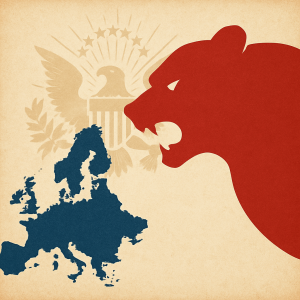The Westerners are wrong. Diplomats and journalists in particular say that Emmanuel Macron is wrong to think that the European Union could assert itself as a player on the international scene, and Vladimir Putin is right to believe in the Union so little that he entered into an arm wrestling match about Ukraine rather with the United States and not with the European Union.
“Divided as never before”, we keep hearing on both sides of the Atlantic, Europe no longer exists and proof of this is that it has no say in its own destiny, but both of these assertions, I am sorry to say, are equally false because Europe, quite on the contrary, has never been less divided than it is today.
Divided, Europe was by the Cold War, but the “other Europe”, Central and Eastern, is now part of the same Union and the same military alliance as what used to be called Western Europe. Europe was also divided by France’s will to show the independence of its diplomacy. At the time, there was France and the rest of the free world, but with communism defeated, we saw Germany and France joining their forces against George Bush’s Iraqi adventure, thereby expressing the overwhelming majority of European public opinion.
As of 2003, a European opinion has made itself clearly heard beyond the governments of the moment, and the annexation of Crimea, the Brexit, Donald Trump and Covid-19 have since spectacularly closed the European ranks.
Yesterday, France was almost alone in arguing for a European defence, common industrial policies and common investments financed by common loans, but all these taboos have now fallen. Even Poland and the Baltic States no longer rely on the United States alone for their security. Germany and the Netherlands, the two most intransigent guardians of fiscal orthodoxy, have opened up to a relaxation of the Stability Pact. The new coalition in power in Berlin intends to turn the Union into a federal power and what has been sketched out for several years is thus no longer questionable.
The Union has entered the third moment of its history, that of the construction of a political union, and even if everything is still to be done about it, even if many conflicts will emerge about how to achieve it, it would not be right to paraphrase Stalin by asking: “Europe? How many divisions?”
The question is outdated because this common defence that the Union is undertaking to build will not add up national armies but will be equipped with the weapons of the future, space and information technology, and will be based on a common foreign policy derived from the realities of this century. From Lisbon to Warsaw and from Copenhagen to Rome, the distance from the United States, the Kremlin’s desire to erase the 1990s, China’s global ambitions and the chaos in Africa and the Middle East are equally threatening for each of the 27, because anything that threatens the stability and security of the Union threatens each of its members.
It is among these four constraints that the Union’s diplomacy will be more and more articulated, and this is so true that the deterioration of the Sahel situation no longer worries only France but the whole of the Union, that Germany no longer sees China as the major market for its automobile industry and that civil nuclear energy divides Paris and Berlin more than the conduct to be adopted with regard to the Russian president. “Europe no longer exists”, we keep hearing everywhere, but we forget that it was during the Cold War that it did not exist, that the lack we feel today is due to the ever-increasing need for a strong Europe and it European unity seems to be non-existent, it is not because Vladimir Putin would like so much to ignore it. Political union is being born, before our eyes, and it is this birth that Emmanuel Macron will try to accelerate during his rotating presidency of the Union.



